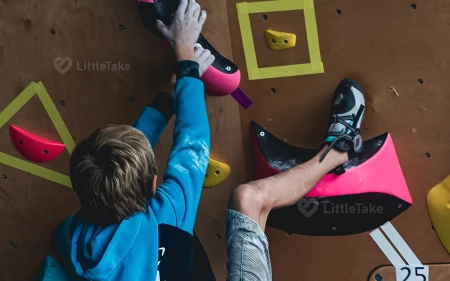
Positive Discipline Strategies for Parents
Positive discipline is a parenting approach that focuses on nurturing a child's self-esteem, self-discipline, and emotional well-being. By using constructive methods, parents can guide their children towards responsible behavior and foster a strong parent-child relationship. Here are some positive discipline strategies to help you effectively manage your child's behavior:
Set Clear Expectations
Establish clear rules and boundaries that are age-appropriate for your child. Discuss the consequences of not following these rules and ensure that your child understands the expectations. By setting clear guidelines, your child will know what behaviors are acceptable and what is not.
Offer Choices
Empower your child by giving them choices within limits. For example, let them choose between two options for a snack or what clothes to wear. Offering choices encourages autonomy and helps your child develop decision-making skills.
Be Consistent
Consistency is key when it comes to discipline. Enforce rules and consequences fairly and consistently to help your child understand the importance of responsible behavior. Inconsistent discipline can lead to confusion and a lack of respect for boundaries.
Focus on the Behavior, Not the Child
When addressing a misbehavior, focus on the specific action rather than labeling your child as "bad" or "naughty." This approach helps children understand that it's their behavior that needs to change, not who they are as a person.
Reinforce Positive Behavior
Praise and acknowledge your child's positive actions and behaviors. This reinforcement can motivate your child to continue making good choices and helps build their self-esteem.
Use Natural Consequences
Allow your child to experience the natural consequences of their actions, when it's safe and appropriate to do so. For example, if your child refuses to wear a coat on a cold day, let them feel the chill so they learn to make better choices in the future.
Teach Problem-Solving Skills
When conflicts or issues arise, guide your child through the process of identifying the problem, brainstorming solutions, and choosing an appropriate course of action. This approach fosters self-discipline and problem-solving skills.
Stay Calm and Patient
Model patience and self-control when addressing your child's behavior. By remaining calm, you can communicate more effectively and maintain a positive atmosphere for learning and growth.
Implementing positive discipline strategies can help you raise responsible, well-adjusted children while fostering a strong parent-child bond. Remember that every child is unique, and it may take time to find the strategies that work best for your family. Keep learning, stay patient, and continue to support your child as they grow and develop.













